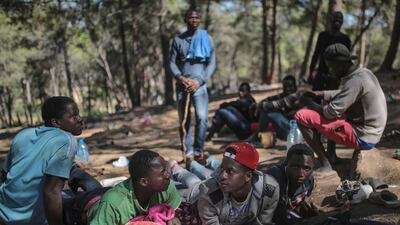"Migration is a shared responsibility." With these five words, spoken during a visit to Morocco, prime minister of Spain Pedro Sanchez has delivered a long-overdue lesson in pragmatic yet compassionate politics, and a tacit admonition of Europe's populist response to migration. Thanks to European Union-funded clampdowns in the waters off Libya, Morocco has become the alternative embarkation point of choice for traffickers offering false hope to the migrants of sub-Saharan Africa. The Libyan strategy is failing. Predictably, the traffickers have shifted operations further along the coast. Italy's problem has simply become Spain's. Worse, Brussels has turned a blind eye to the consequences of paying Libya to do its dirty work – the hell of forced labour, torture, rape and even death unfolding in the Libyan refugee camps.
Working hand in hand with Saad Eddine El Othmani, his opposite number in Morocco, Mr Sanchez is offering an alternative vision. Security alone, he says, is not the answer to the complexities of migration. Instead of paying its southern neighbours to act as Europe's immigration officers, the EU would do better to fund development programmes in sub-Saharan Africa. This joint Spanish-Moroccan proposal acknowledges the truth, often forgotten in the divisive migration debate dominating European politics, that it is circumstance and not personal choice that creates migrants. In office for little more than five months, Mr Sanchez has already demonstrated his contempt for the populist approach to migration of Italy's coalition government, opening the Spanish port of Valencia to ships carrying migrants rescued off Libya that had been turned away by Italy.
At their closest, Spain and Morocco are separated by barely 20 kilometres of sea, so it is fitting that it is here that the seeds of constructive collaboration over migration are being sown. Mr Sanchez appears determined to build bridges of imagination across the Mediterranean. If successful, his proposal that Spain, Portugal and Morocco should jointly host the 2030 World Cup would unite Europe and Africa in a way that politics has consistently failed to do.
Next month, the nations of the world will gather in Morocco to adopt the UN’s Global Compact for Safe, Orderly and Regular Migration. This document, a welcome response to the horrors of the Mediterranean migration crisis, proposes constructive, collaborative and humane solutions to a phenomenon that has cost many lives and generated widespread discrimination and exploitation. Dismayingly, some countries are already baulking at the idea of signing, spurning the UN’s appeal that they should turn away from the “low road of reactive, populist and ultimately unsustainable policies”. Perhaps in Marrakech, in the example being set in the partnership between their host country and Spain, they will find sufficient inspiration to shame them back towards the high road.

